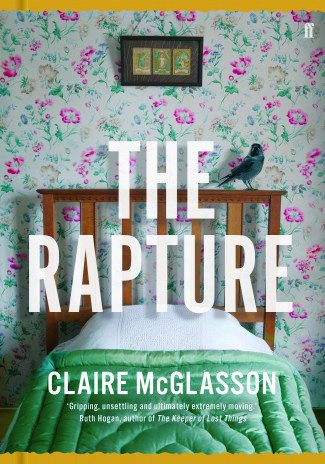They look perfectly ordinary from the outside: terraced Victorian houses with bay windows and chequerboard paths. I walked past them many times in my childhood with no idea that a cult of women lived inside them. A cult convinced their leader, Octavia, was the daughter of God.
By then only a few members of the Edwardian Panacea Society [in Bedford] were still alive, custodians of the dozens of houses that had been sealed up every time one of their number had died. Each room remained just as they had left it: each wardrobe still full of clothes, each dressing table covered with perfume bottles and photographs. It was only when the last believer, Ruth Klein, died in 2012 that the secrets of the Panacea Society became known and the site became a museum.

I first visited two years later in my role as a correspondent for ITV News and was fascinated by the story of feminism and faith, repression and longing, which began when the cult was established in 1918. I took a tour of the chapel built in a communal garden, which members had created by knocking down the dividing walls. I saw an early photograph of a garden party: ladies in hats and gloves sat around large tables taking tea and waiting for Jesus to return. The long exposure of the camera made many of them blurred but one woman, noticeably younger than the rest, was staring straight at the lens. She was Dilys Barltrop, whose real life inspired the main character in The Rapture.
How could I – so accustomed to writing short reports for television news – explore a subject in 100,000 words?
As a journalist I am used to dashing from subject to subject, immersing myself in a story for a matter of hours before filing my report and starting afresh. The Panacea Society is the one subject that I have kept returning to; a story by turns radical and reactionary. I tried on various occasions to persuade authors I interviewed to write a novel about the society. When James Runcie, author of The Grantchester Mysteries series, suggested I do it myself, I was mystified. How could I – so accustomed to writing short reports for television news – explore a subject in 100,000 words?
Delving into the Panaceans’ comprehensive archive, I was handed Octavia’s paper knife and given permission to unseal confessions marked ‘if unopened please burn’. I read shopping lists and diaries, accounts of spiritual rituals and the words Octavia would receive from God through automatic writing every night. So fascinating were the details I uncovered that the greatest difficulty was tearing myself away to sit down and write. But I knew I must.
The Rapture is not the story of the Panacea Society. It is a work of imagination, inspired by what I read and what I felt. I found the freedom afforded by fiction to be both liberating and terrifying. I could condense real events into a shorter space of time, borrow one person’s experiences and give them to another character.









